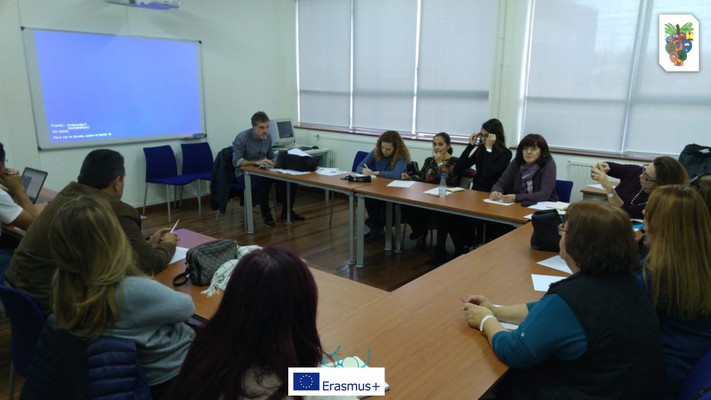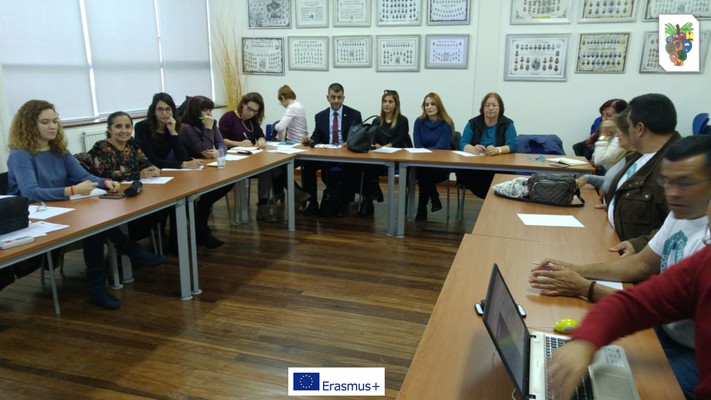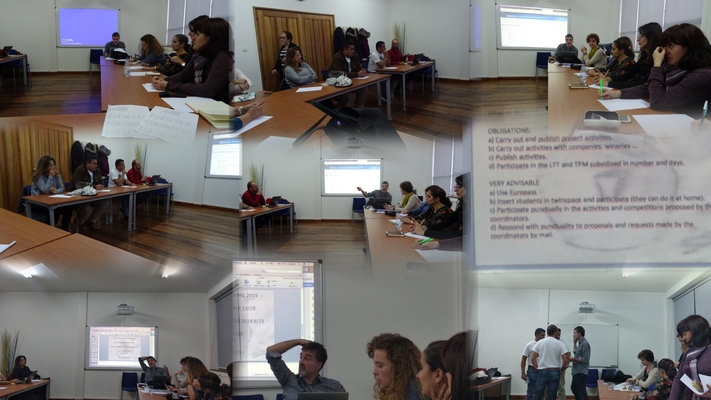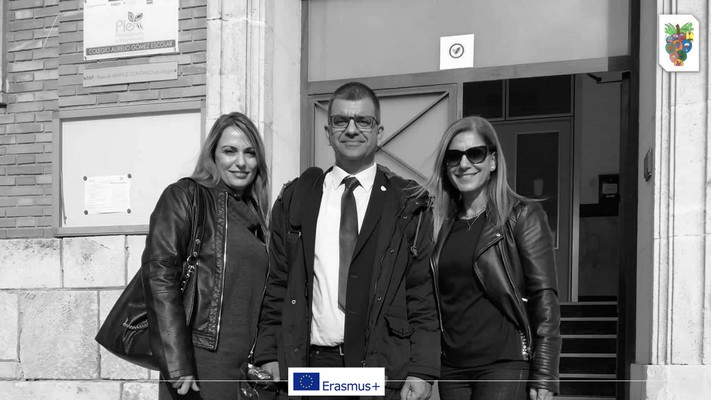Opening of the TPM meeting at Aurelio Gómez Escolar School (Avenida Costa Rica s / n, Burgos, Spain)
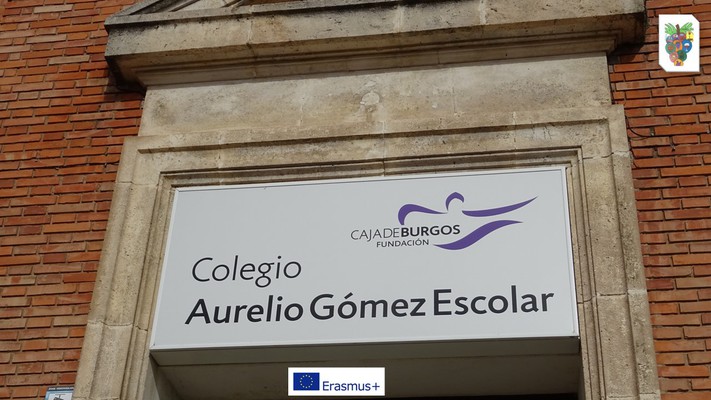
Colegio Aurelio Gómez - Spain (coordinator)
Web [ link ]
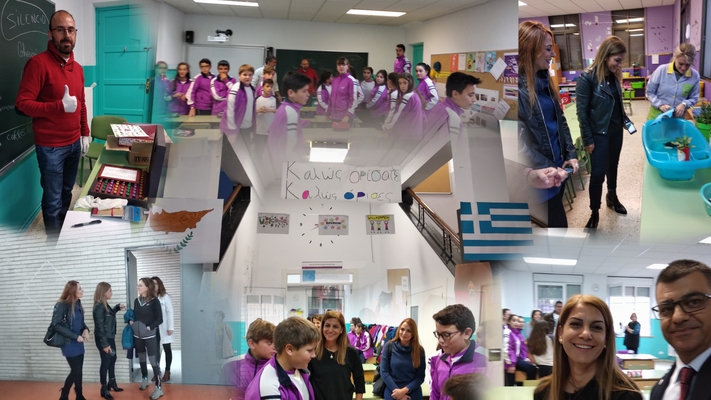
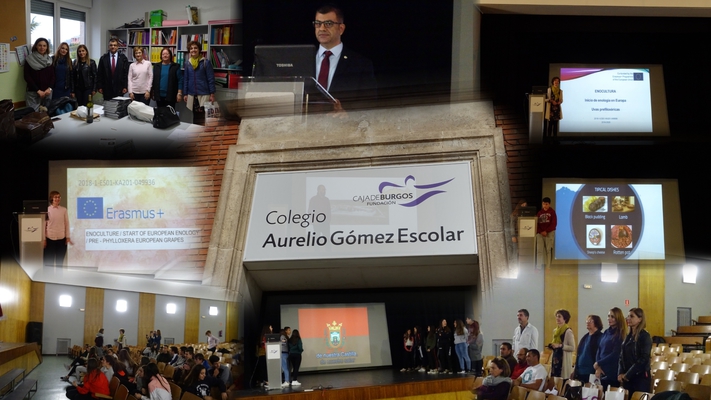
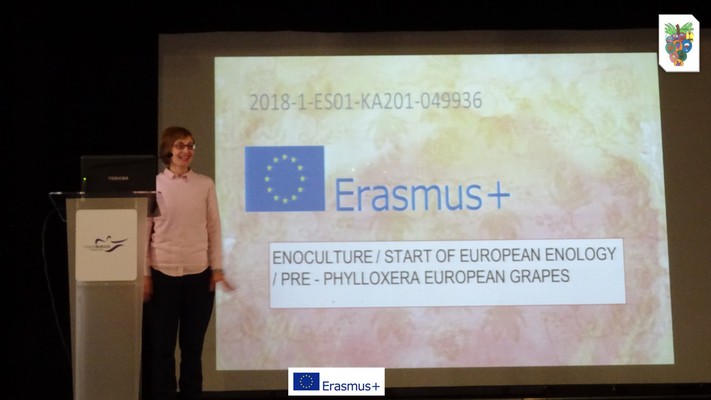
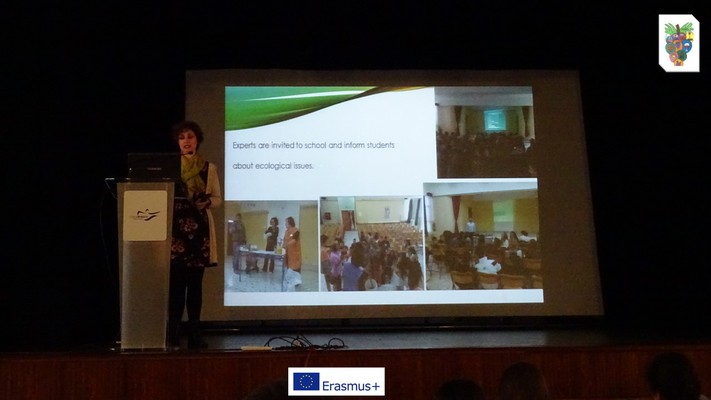
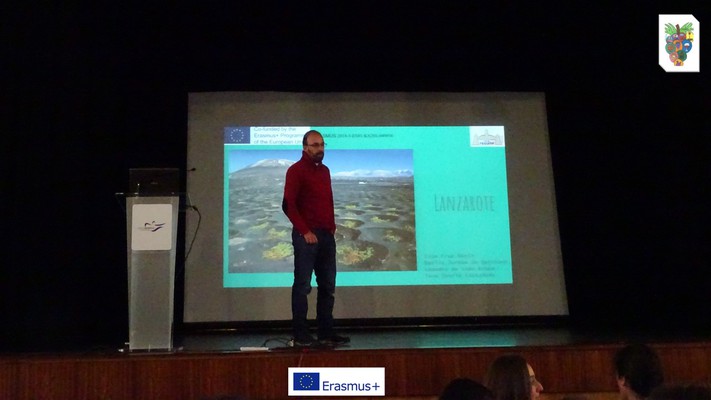
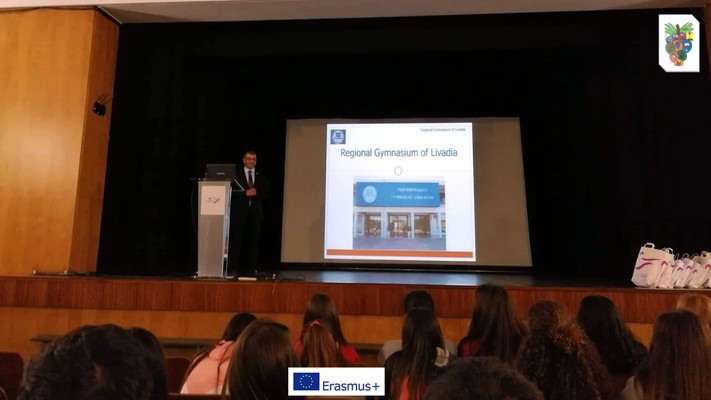
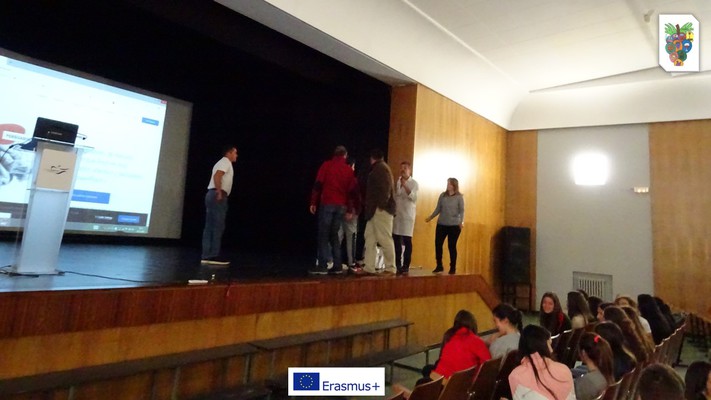
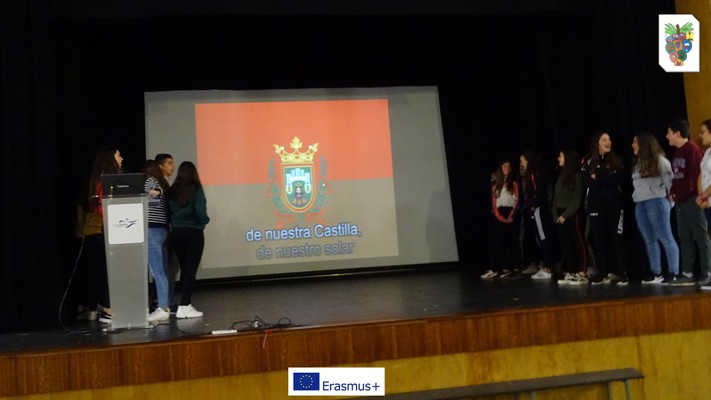
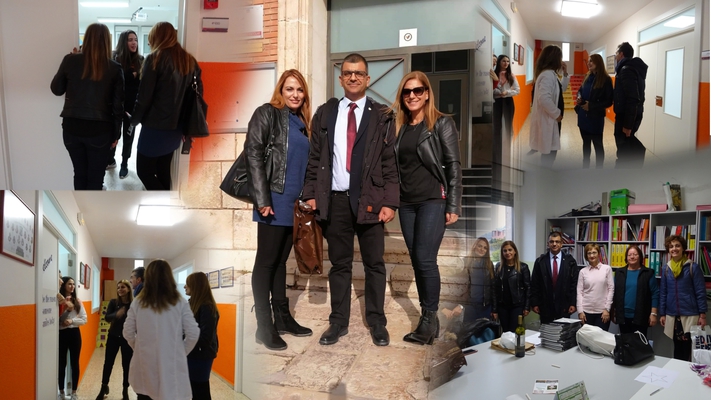
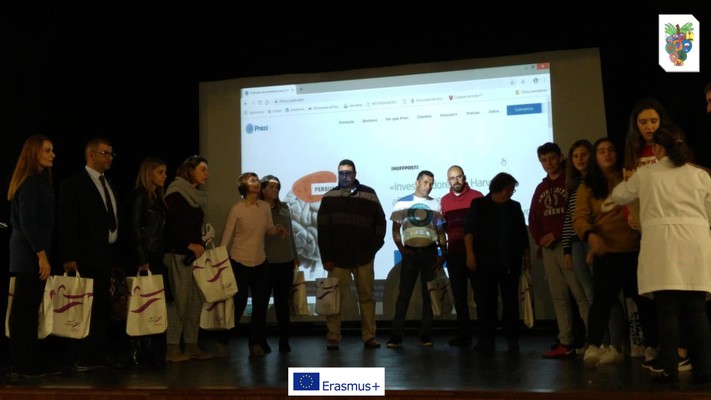
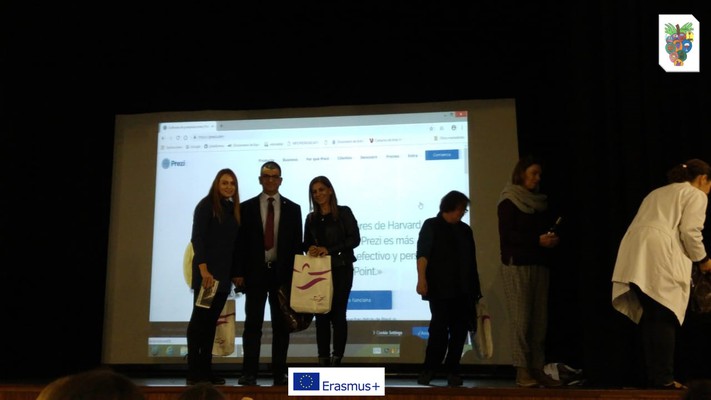
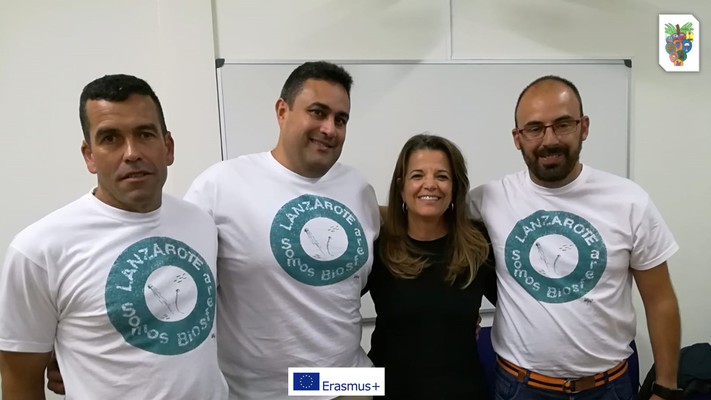
Rioja
Rioja [ˈrjoxa] is a wine region in Spain, with denominación de origen calificada (D.O.Ca., "Qualified Designation of Origin"). Rioja wine is made from grapes grown in the autonomous communities of La Rioja and Navarre, and the Basque province of Álava. Rioja is further subdivided into three zones: Rioja Alta, Rioja Oriental and Rioja Alavesa. Many wines have traditionally blended fruit from all three regions, though there is a slow growth in single-zone wines.
Source: [ wiki ]
Rioja Wines
The history of Rioja wine reflects a long and varied winemaking tradition in the Spanish region of La Rioja, starting with the first Phoenician settlers in 11th century BC. As with many of Europe's most well known wine regions, the Ancient Romans founded many of the Rioja vineyards. Throughout the Middle Ages, pilgrims to the shrine of St. James at Santiago de Compostela passed through the region and carried back with them the reputation of wines from the area. The phylloxera epidemic of the late 19th century was a major catalyst in the expansion and modernization of the Rioja wine industry, with the devastation the French wine industry both opening up the French wine market and bringing an influx of French investment into the region. Today, together with Sherry, Rioja is the most internationally recognized of all Spanish wines.
Source [ wiki ]
Workshop - Wine analysis practices at the Faculty of Chemistry of the University of Burgos
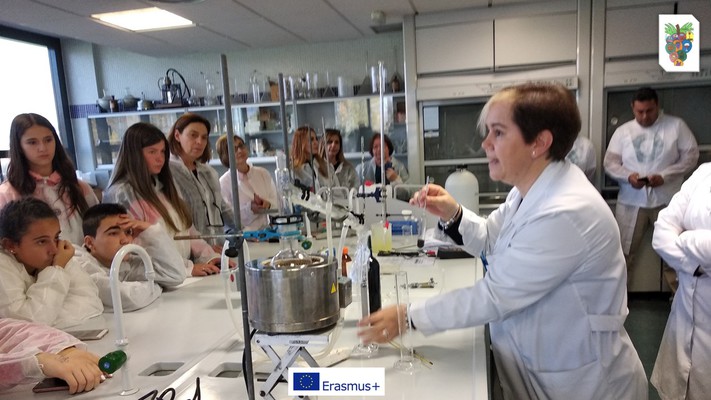
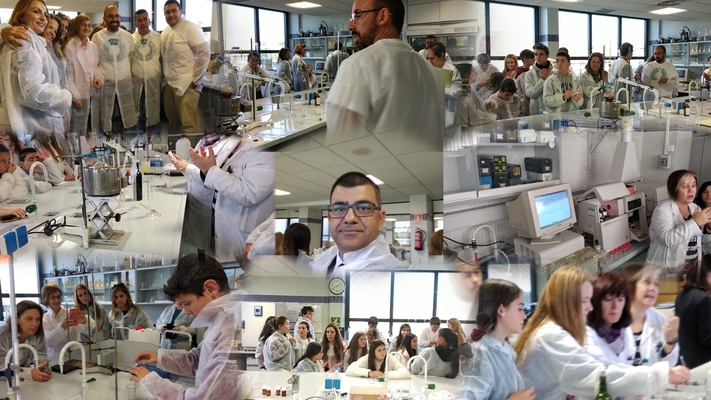
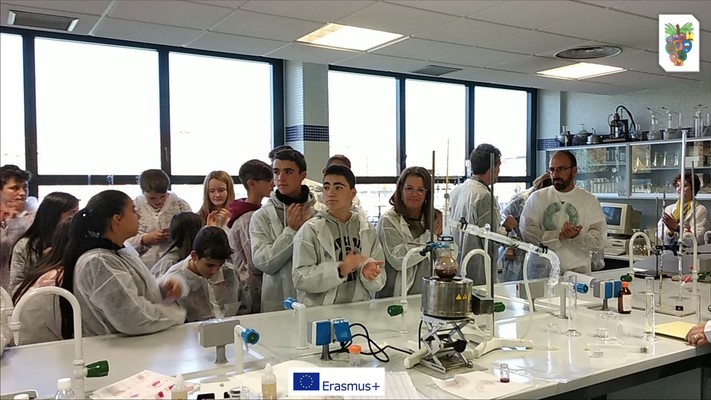
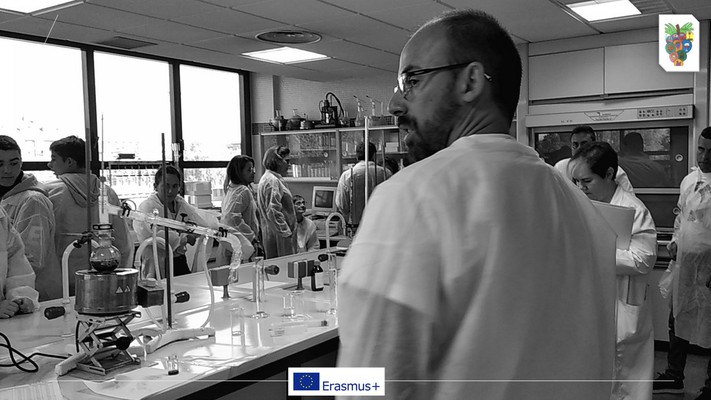
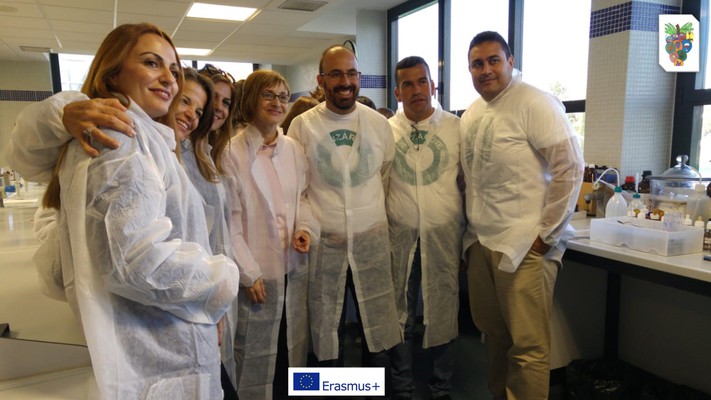
Workshop - Wine Tasting
Wine tasting is the sensory examination and evaluation of wine. While the practice of wine tasting is as ancient as its production, a more formalized methodology has slowly become established from the 14th century onwards. Modern, professional wine tasters (such as sommeliers or buyers for retailers) use a constantly evolving specialized terminology which is used to describe the range of perceived flavors, aromas and general characteristics of a wine. More informal, recreational tasting may use similar terminology, usually involving a much less analytical process for a more general, personal appreciation.
Results that have surfaced through scientific blind wine tasting suggest the unreliability of wine tasting in both experts and consumers, such as inconsistency in identifying wines based on region and price.
Source: [ wiki ]
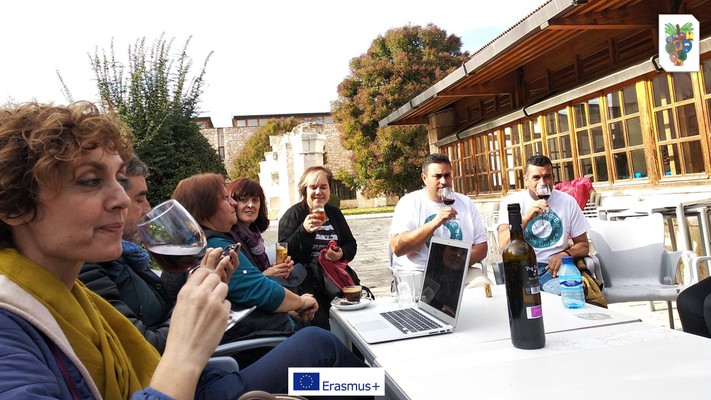
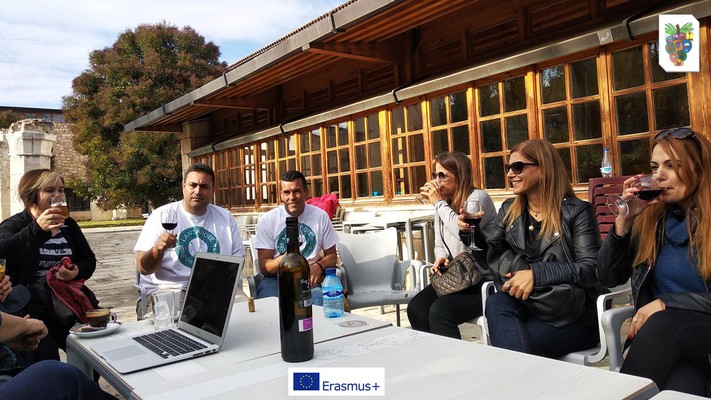
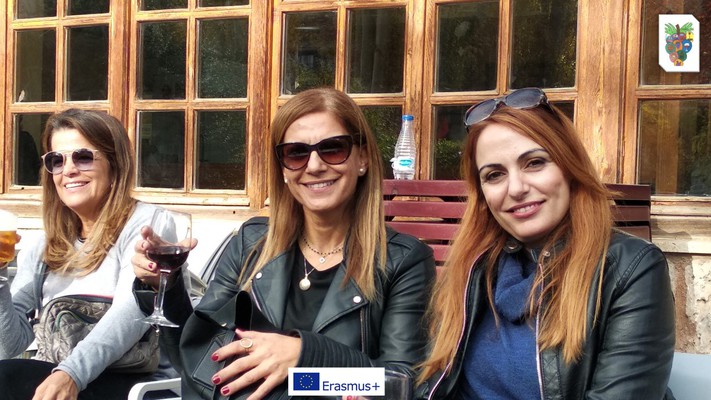
Workshop of wine aromas with alumnus of 1st of E.S.O
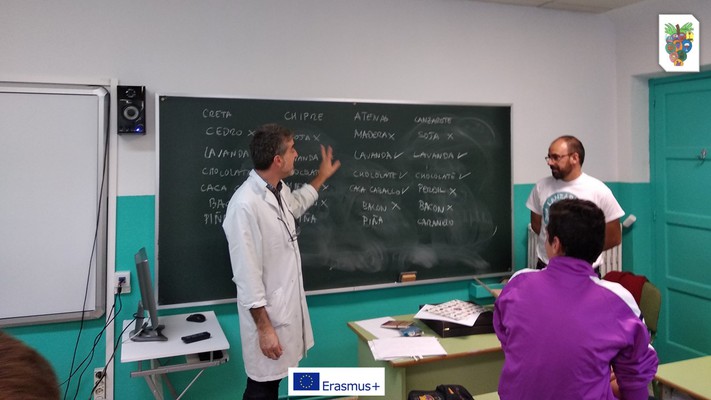
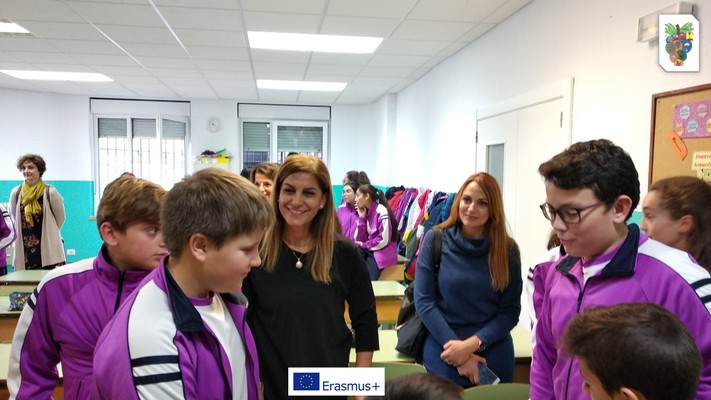
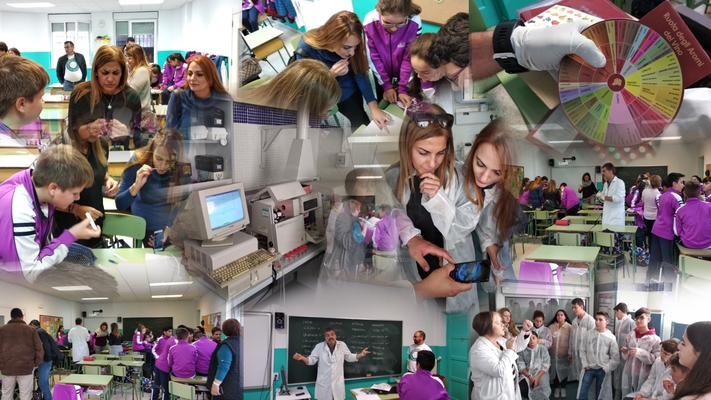
Project Management Meeting
